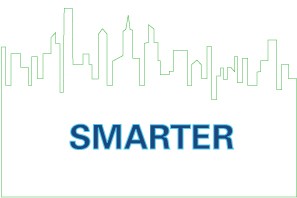Project Title:
CPS:Synergy: Collaborative Research: SMARTER – Smart Manager for Adaptive and Real-Time decisions in building clustERs
Principal Investigators (Drexel Team):
Jin Wen
Co-Investigators:
Xiwang Li
Collaborators:
Arizona State University (PI: Teresa Wu); University of Buffalo (Kemper Lewis)
Funding Agency:
National Science Foundation
Funding Period:
2012 – 2015
Abstract:
In this project, we propose a new concept: NetZero energy building clusters. Our objective is to develop a synergistic decision framework to enable such next-generation building clusters to work as an adaptive and robust system within a smart grid, reducing overall energy consumption and allowing for optimal operation decisions enabled by cyber support tools. Our vision is that the next generation building systems will freely form clusters, within each of which buildings can autonomously share and exchange site-generated energy, fundamentally transforming the consumption of energy in buildings, which comprises the largest sector of energy consumption. The primary research challenges are: a) Develop an emulator for NetZero energy building clusters to benchmark and evaluate different operation strategies; b) Develop and calibrate networked energy consumption models for temporally and spatially distributed buildings, and c) Develop multi-time scale adaptive decision algorithms for dynamic operation strategies. The intellectual merit of this proposal lies in developing innovative algorithms and tools in four disciplines (building energy modeling, intelligent data fusion, decentralized decision and adaptive Pareto decisions) as well as providing the synergy for their unique seamless integration to address the theoretical and practical challenges in next-generation building systems. The primary research issues that constitute the significant intellectual challenges include developing automatous self-tuned high-fidelity models for building systems, advancing noise-tolerant techniques in data fusion for multi-model calibration, studying Pareto optimality in multi-time scale decentralized decisions, and developing methods to determine the optimal trajectory of changes in adaptive decisions. Not only will we address the critical issues in each discipline, but we will also provide an interdisciplinary framework to support the intelligent design and emergence of next-generation NetZero building clusters. The intellectual contributions will result in a transformation from the current centralized and unidirectional power distribution model in the energy industry to a decentralized and multi-directional power sharing and distribution model.
